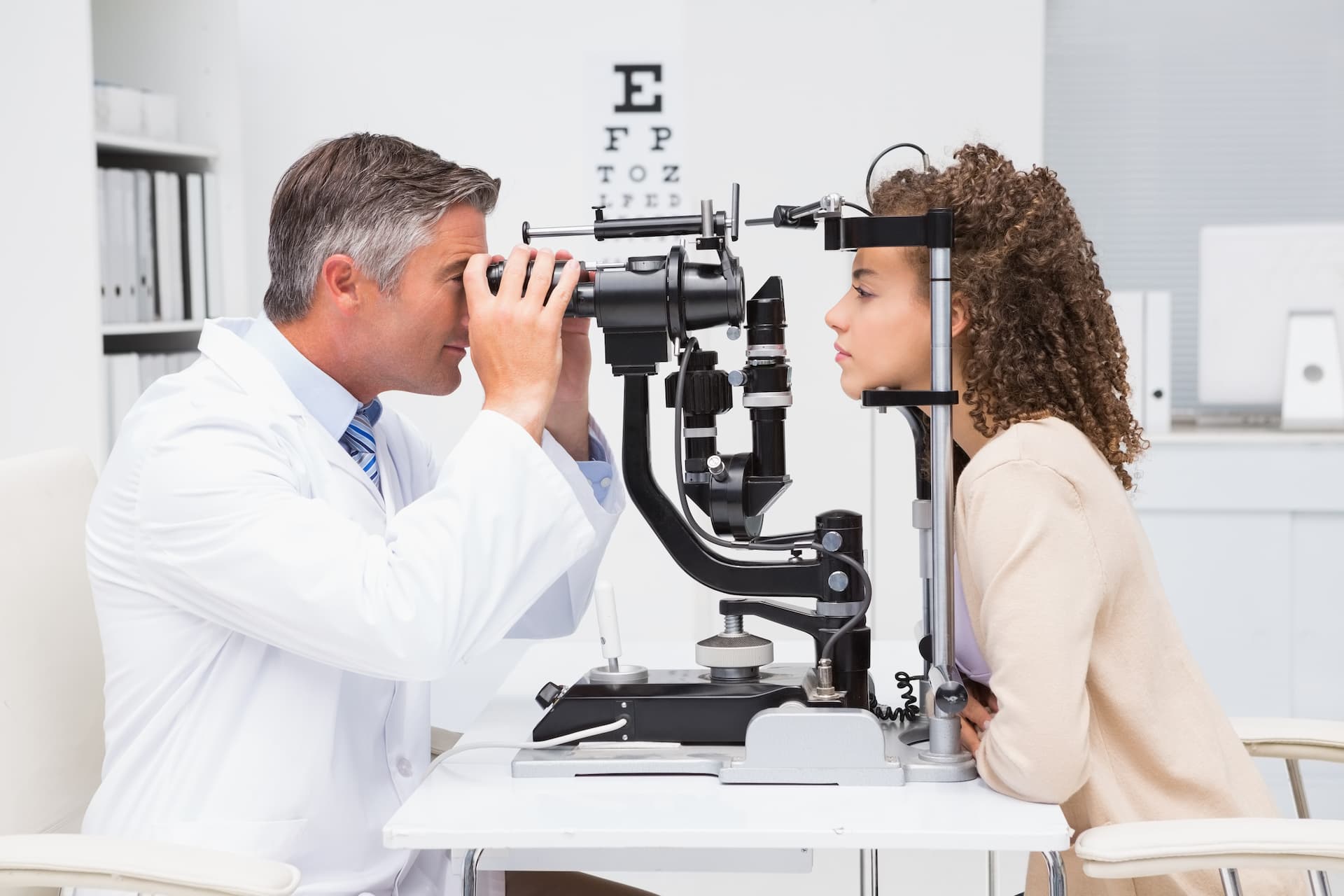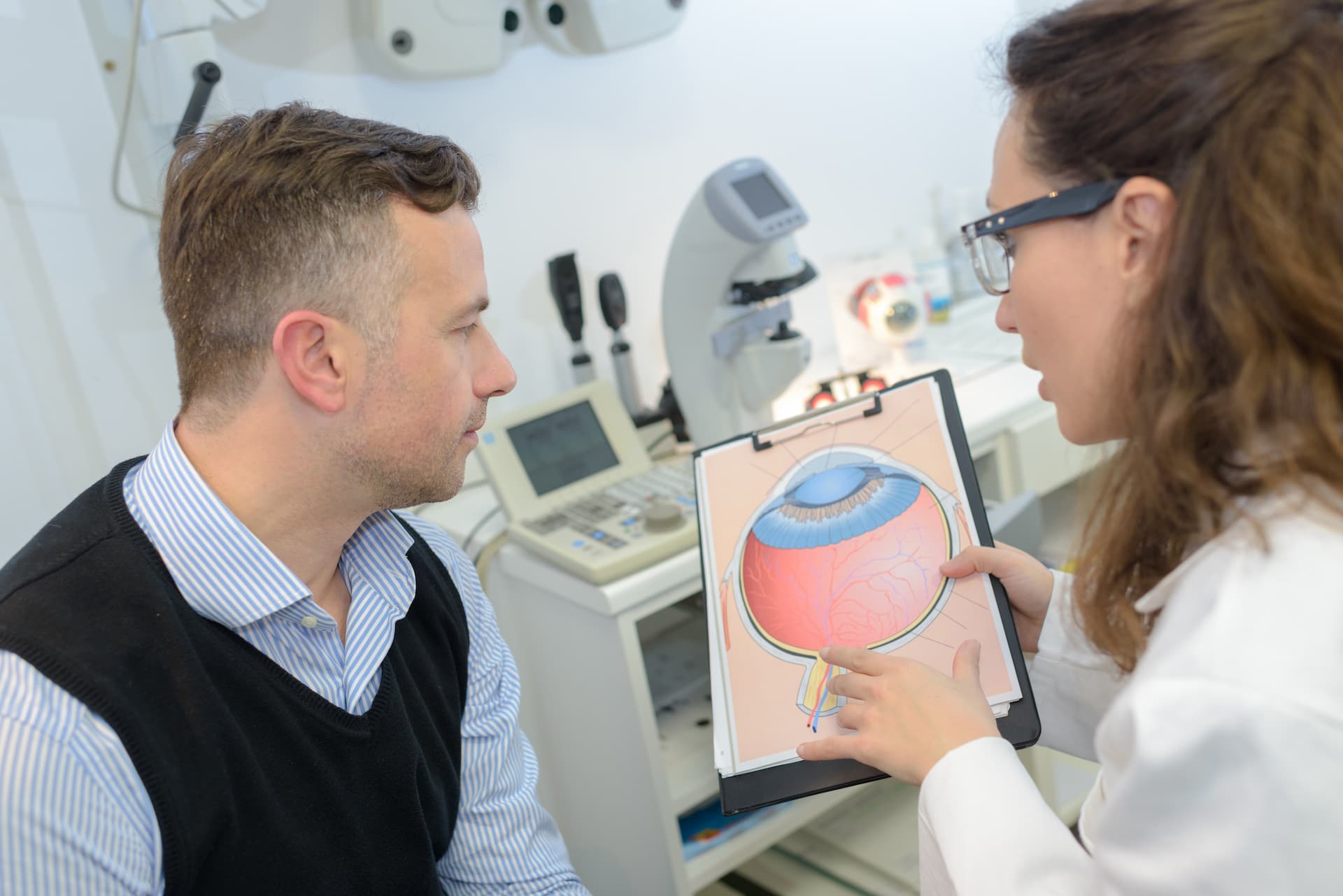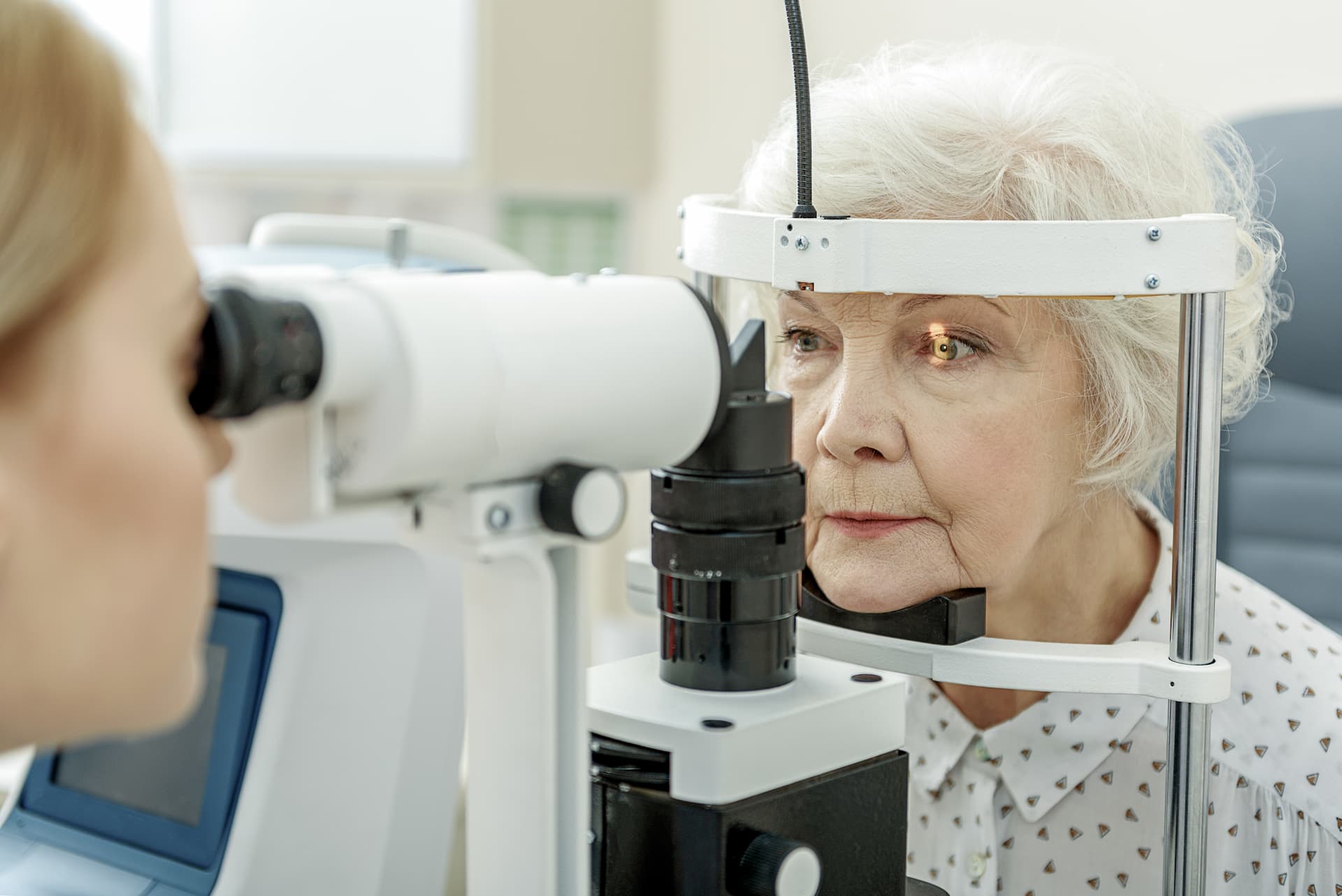
New Jersey Trusted Eye Care
For more than a century - Optometrists, also recognized as Doctors of Optometry - in New Jersey, have been the first source for managing a patient’s eye care and health.
Now, optometrists are seeking to modernize New Jersey’s outdated optometric scope of practice through legislation (A-920 / S-354), which will allow optometrists to help improve access to care and health equity in our state. See below for more information about the legislation, why it’s needed and what it will specifically allow.
Legislation Overview
Legislation That's Vital To Critical Patient Eye Care
A-920/S-354 was introduced to allow optometrists to provide certain in-office, minor, non-invasive procedures to treat glaucoma and after-cataract surgery care and minor procedures to remove styes and skin tags. The legislation also seeks to expand vaccination and prescriptive authority to further increase access to needed care.
It’s about increasing equity and access, while reducing costs…
 Now more than ever this legislation, which allows optometrists to provide critical eye care when and where it’s needed most, is needed to ensure all New Jersey residents have timely access to vision and medical eye care. It will lower costs by eliminating duplication of services and extra co-pays for redundant office visits. It also will reduce patient travel time and missed hours at work.
Now more than ever this legislation, which allows optometrists to provide critical eye care when and where it’s needed most, is needed to ensure all New Jersey residents have timely access to vision and medical eye care. It will lower costs by eliminating duplication of services and extra co-pays for redundant office visits. It also will reduce patient travel time and missed hours at work.
There will be 3 million New Jerseyans over age 60 by 2030, an increase of nearly 1 million, which will dramatically increase the need for eye care. In fact, a recent workforce study published in the Journal of Ophthalmology anticipates a 24% increase in patient demand for the laser procedures included in this legislation while the number of ophthalmologists is expected to decline 12% by 2035.
Today, optometrists outnumber ophthalmologists nearly 2:1 in New Jersey. Our health care system and workforce are strained, and optometrists can be part of the solution. Allowing optometrists to perform these procedures allows our state to utilize all available resources for providing care.
Slightly expanding optometrists' scope of practice aligns with current optometric education, training, and certification and helps retain and attract highly skilled, qualified optometrists to our state.
These procedures are approved to be performed by optometrists/doctors of optometry in other states and within the U.S. Department of Veterans Affairs Community Care Program. More than 140,000 of these procedures have been performed by these professionals across the United States. It's time for New Jersey to catch up. Optometrists are the solution.
In-office eye laser procedure certification requires:
- 4 years of doctor of optometry school
- Evaluation and management of thousands of patients
- Years of training in ocular disease and treatment
- Three national board examinations
- Performance proficiency examination
Curious about how the laser procedures mentioned in this legislation are performed? Watch the video below. Optometrist Dr. Kelley Sedlock Cerchione, OD, FAAO, (featured in the video) successfully conducted hundreds of these procedures in Kentucky before she moved to New Jersey. Today, she's unable to perform these procedures on her patients because of New Jersey's optometric scope of practice restrictions. In this video, Dr. Cerchione demonstrates a laser procedure.

Why it Matters
Optometrists have been treating glaucoma for 30 years and managing after-cataract conditions for almost 40 years.
By expanding the eye laser procedures in New Jersey within an optometrist's scope of education, training, and certification, New Jerseyans will have better access to the care they need.
When optometrists can perform these procedures, they can provide care when and where it's needed. It also lowers costs by eliminating duplication of services and additional co-pays, health care costs, caretaker arrangements, travel time, and time spent with blurry vision.
Regulated Profession
Why do states regulate practice standards for optometrists?
Every state governs the privileges of its health care providers through licensing programs. Although every optometry school trains its students to provide in-office eye laser procedures and in-office surgical care, every state decides the rights of its doctors of optometry to perform these procedures. Typically, MDs try to limit the rights of optometrists, dentists, nurses, chiropractors and other health care professions.

Changing Scope to Meet Patient Needs
New Jersey optometrists have expanded their scope of practice over the past 40 years to keep their patient care up to the standards of their education, training, and certification.
Imagine your optometrist not being permitted to dilate pupils or treat pink eye? Forty years ago, MDs tried to prevent optometrists from providing this care.

Optometrists Performing In‑Office Eye Laser FACTS
- These procedures are approved to be performed by optometrists/doctors of optometry in other states and within the U.S. Department of Veterans Affairs Community Care Program. More than 140,000 of these procedures have been performed by these professionals across the United States since 1998.
- All U.S. optometry schools train students to perform the procedures included in this legislation. Optometry schools continue to adjust and evolve curriculum to include new education and procedures as the optometry profession evolves and advances.
- Currently licensed optometrists would not be grandfathered to perform these minor procedures. They would be required to complete additional training including performing procedures under direct supervision to demonstrate competence to satisfy State Board requirements.
-
A recent review of more than 140,000 optometric laser procedures performed by optometrists in 12* states showed a strong safety record and support for future optometric scope expansion.
*Since this study was conducted, the number of states authorizing optometrists to perform laser procedures has increased to 14. More than 10 other states are currently considering similar legislation.

Optometry and ophthalmology play a vital, coordinated role in modern eye care
Optometrists respect and work closely alongside ophthalmologists to provide their patients the best possible eye care in New Jersey.
Ophthalmologists provide a critical surgical role in incisional glaucoma surgery, retinal surgery, eye muscle surgery, corneal transplants, and much more. Patients are much better served when each discipline is able to practice to the fullest extent of their education, training, and certification.
Optometry Education
To Match
New Jersey optometrists have one of the most rigorous continuing education requirements for re-licensure, requiring 50 hours of approved continuing education every two years.
The numbers are clear. Optometrists have the education and training to perform these procedures.
Click here to read more about the optometry school classroom.
4 Years
of undergraduate university.
4 Years
of doctor of optometry school. Like medical doctors, dentists and podiatrists, optometrists complete 4 years of professional school following college.
1000s
of patients with eye diseases receiving care and individual treatment plans while the optometrist was in school.
~10,000
of hours of optometry education and patient care before independently seeing patients.
50
hours of approved continuing education every two years
Certified
in laser treatment procedures, in‑office surgical care, and more.
Every Day
Optometrists use a microscope to diagnose over 270 systemic health conditions such as diabetes, high blood pressure, auto-immune diseases, cancers and more.
These doctors are trusted and often more accessible than their eye surgeon colleagues (ophthalmologists) who don't practice in all of the counties in New Jersey.
Proven Success
Optometrists in other states already perform in-office eye laser procedures to treat glaucoma and after-cataract surgery care. While optometrists are the trusted professionals for the majority of eye care patients in the United States, you still need an ophthalmologist (eye surgeon) to perform cataract surgery, retina surgery and more.
Every optometry school in the USA trains optometrists to perform in-office eye laser procedures, and optometrists in other states have been performing in-office laser procedures since the 1990s. In other states, these glaucoma and after-cataract in-office eye laser procedures are provided by optometrists.
Ophthalmologists have commonly tried to reduce patients' access to care by saying that only they can perform in-office eye laser procedures − even though optometrists have been performing these procedures for decades.
Ophthalmologists often claim that their training is superior to optometrists and try to limit them doing even basic procedures such as:
- Dilating pupils during an eye exam
- Recommending artificial tear drops for dry eye
- Prescribing eye drops for pink eye or glaucoma
- Treating eye lid chalazia with steroid injections
Imagine your optometrist not being permitted to dilate pupils or treat pink eye? Forty years ago, MDs tried to prevent optometrists from providing this care.
In The News
NOTE: Prior to January 9, 2024, legislation was referred to as A-5445 / S-3841.

















